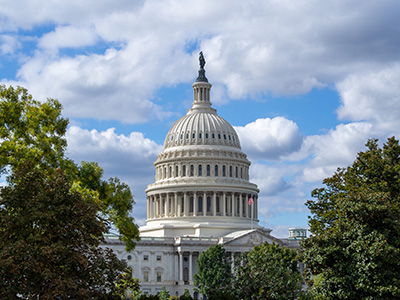FY2023 Projected Federal Contracts from the White House
6/2/22
The latest Federal FY2023 budget information from the Biden Administration gives us a good overview of how the federal government will be allocating future funds. The figures below reflect the proposed budget. Congress may decide to modify these suggestions and/or change the obligated dollar amounts, however it still provides a good roadmap of federal priorities.
The Social Security Administration (SSA) planned budget will be increased to approximately $15 billion, roughly $2 billion more than 2021 levels. These funds are earmarked to improve service distribution at field offices, state disability determination services, online service, and teleservice. At the Department of Housing and Urban Development (HUD), the planned budget will support 2,000 units of new permanently affordable housing designated for seniors and people with disabilities. $5 billion is allocated for the Department of the Treasury’s Community Development Financial Institutions Fund to provide for the financing of new construction and rehabilitation of units.
The Health Resources & Services Administration (HRSA) would see expanded funding for the Maternal, Infant, and Early Childhood Home Visiting Program which serves about 71,000 families. Specific activities include collection and evaluation of health equity data, and services such as mental health assistance/screening, treatment for maternal depression, and related behavioral health conditions.
maternal depression, and related behavioral health conditions.
The Health and Human Services (DHHS) is planned to receive $850 million with an emphasis on HIV prevention, care programs, and support services. Medicaid recipients, and potentially the uninsured, will be availed pre-exposure prophylaxis (also known as PrEP) at little or no cost.
The Department of Agriculture (USDA) would receive $600 million via the Bipartisan Infrastructure Law. This would require the deployment of broadband internet in rural areas and the upgrade of existing rural broadband facilities to the most modern broadband technology.
YouthBuild, and a new National Youth Employment Program are planned in FY2023 which would require the delivery of high-quality occupational skill training, as well as research for enabling the disabled to gain employment skills. A cumulative $235 million is allocated to this initiative.
The Environmental Protection Agency (EPA) would be allocated $1.45 billion for a variety of clean energy programs and remove existing pollution. There is a LIHEAP Advantage pilot mentioned which would provide low-income homes with energy efficient electric appliances and systems. Also called for are upgrades to the lead reduction in potable water and the replacement of lead pipes in rural households.
The Department of Defense (DOD) would receive $773.0 billion, a $30.7 billion increase from FY 2022. Key workforce initiatives include construction of childcare facilities and increased associated services, enhancement of health services and security products and services in Hawaii, construction of new family housing, medical facilities, and quality of life related facilities. Other DOD investments include nuclear enterprise modernization, the creation of new air, naval, and ground forces, missile defense, long-range missiles, space-based systems, further construction, Guam security enhancements, cybersecurity, and modernization initiatives.
If your business could handle any of the requirements above, we recommend you start a 5-day trial of EZGovOpps to ensure you are aware of federal opportunities that match your expertise, and to be alerted of new FY2023 opportunities as soon as they are available.


